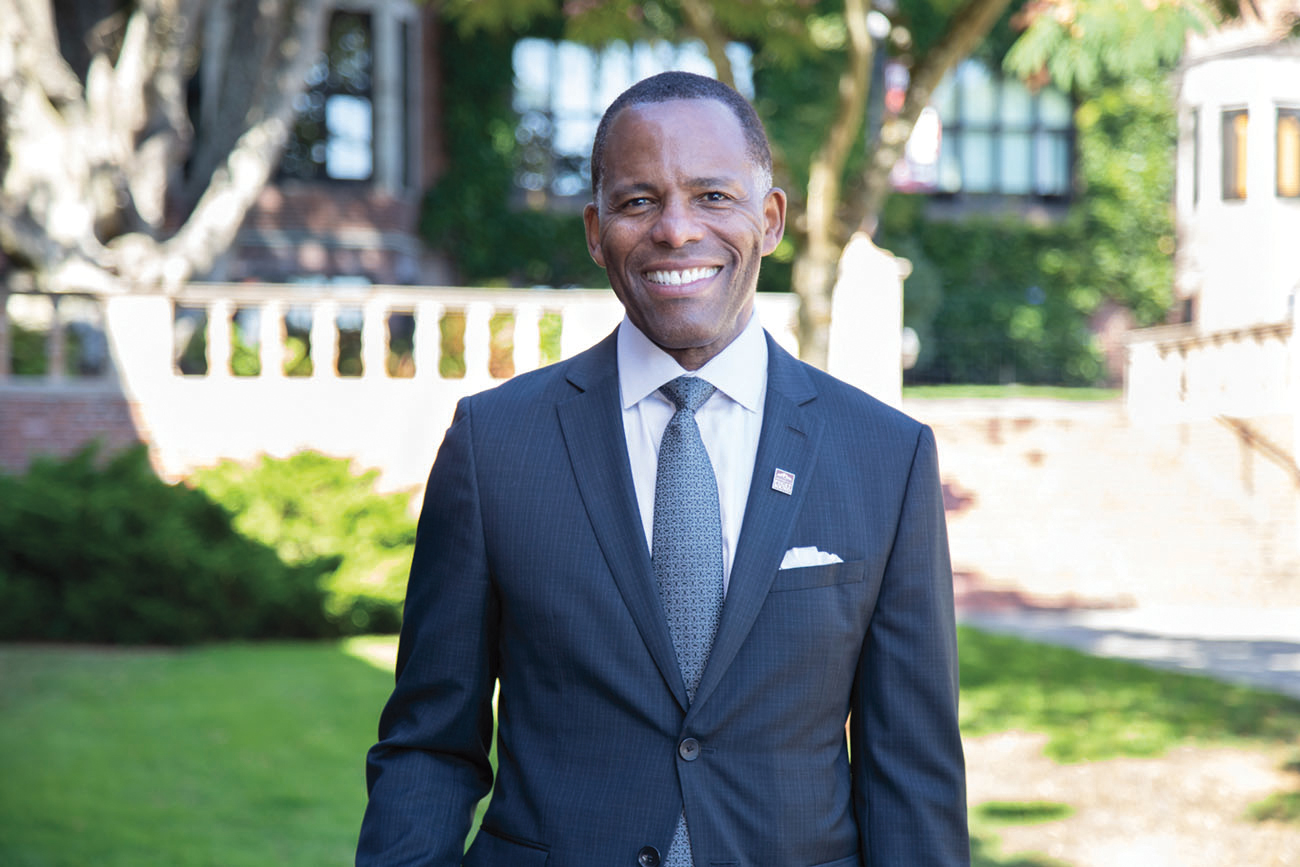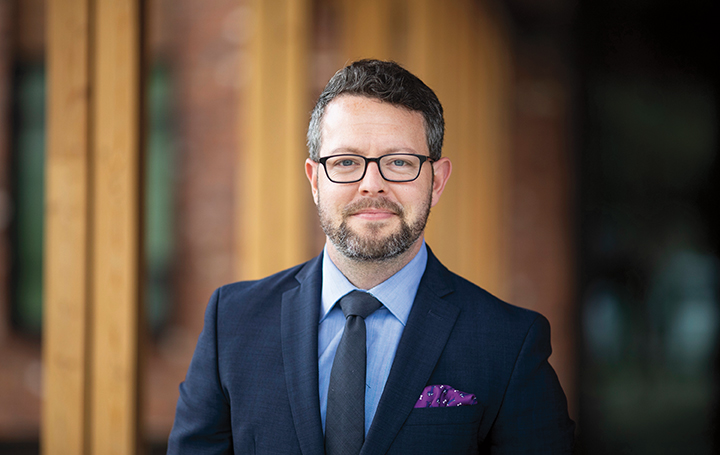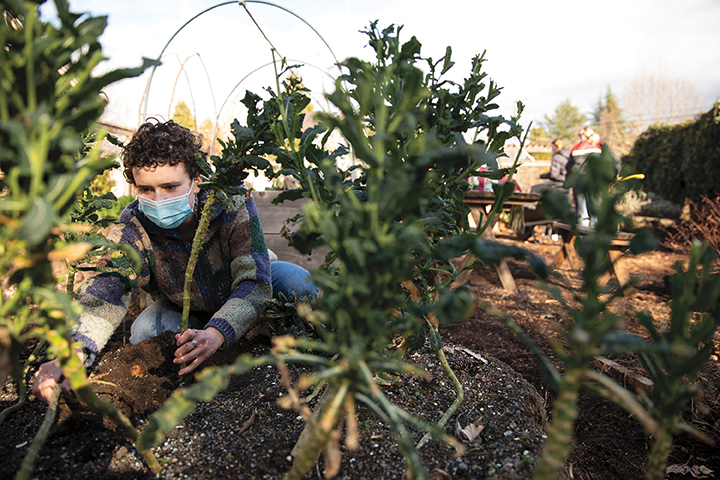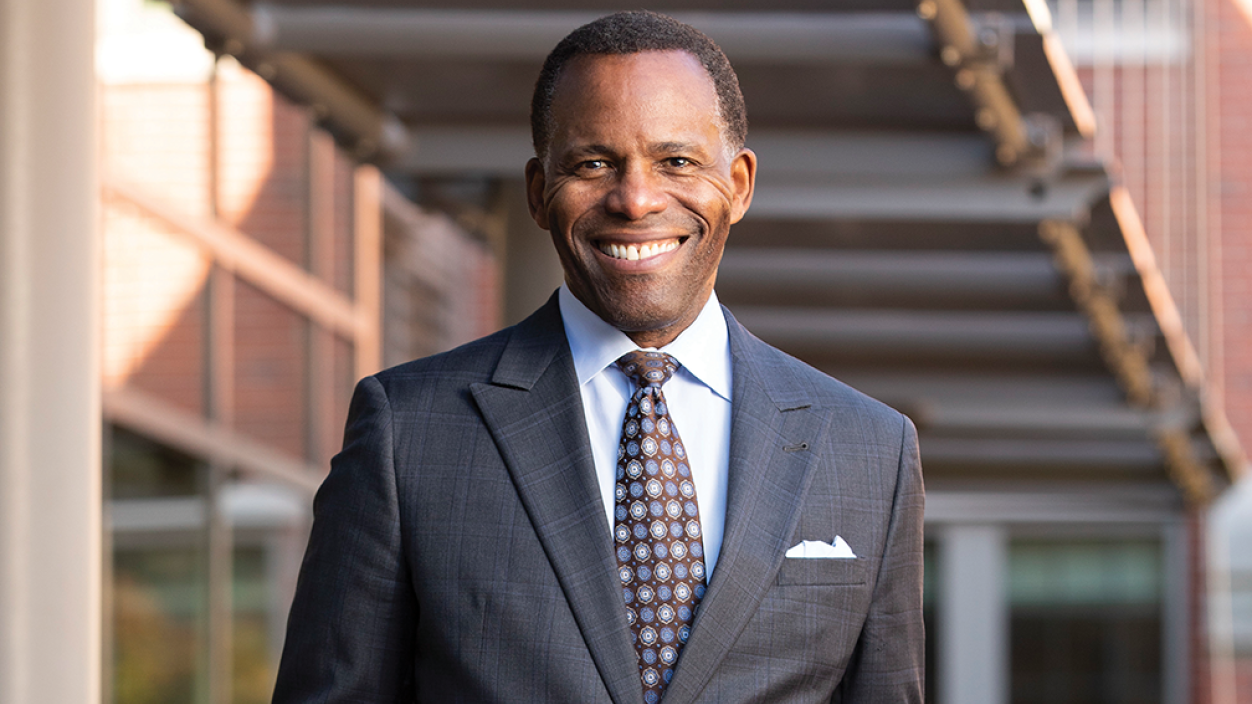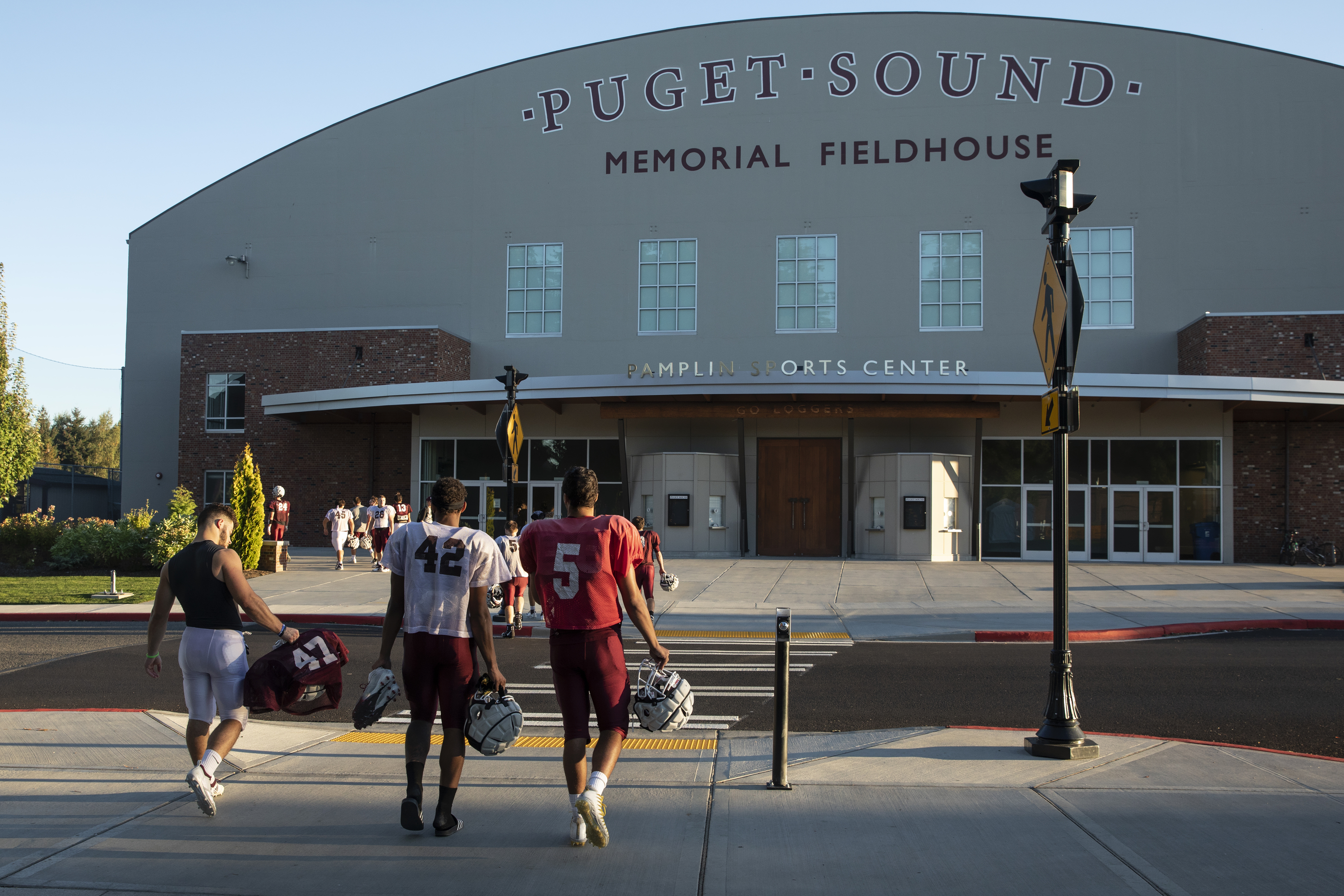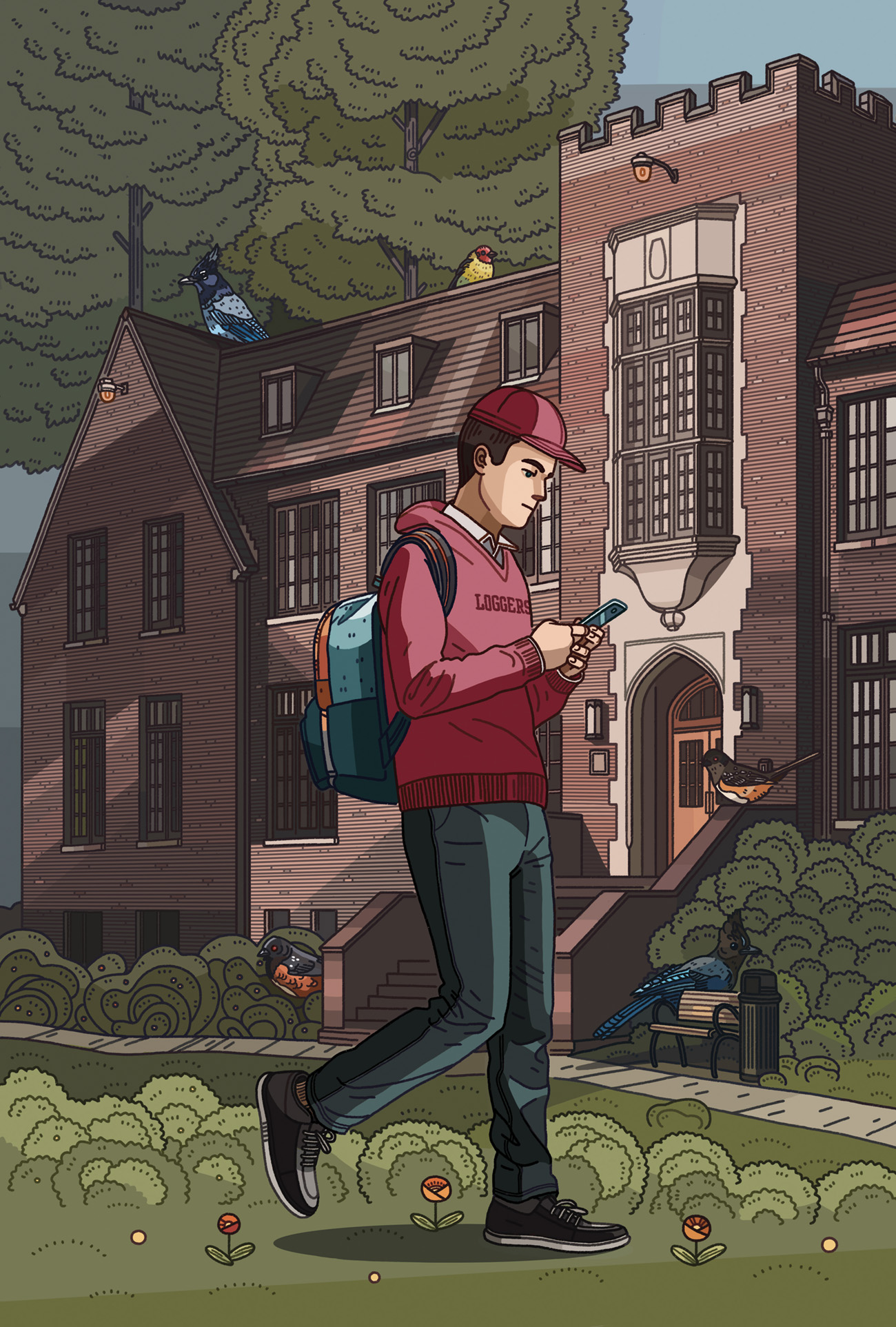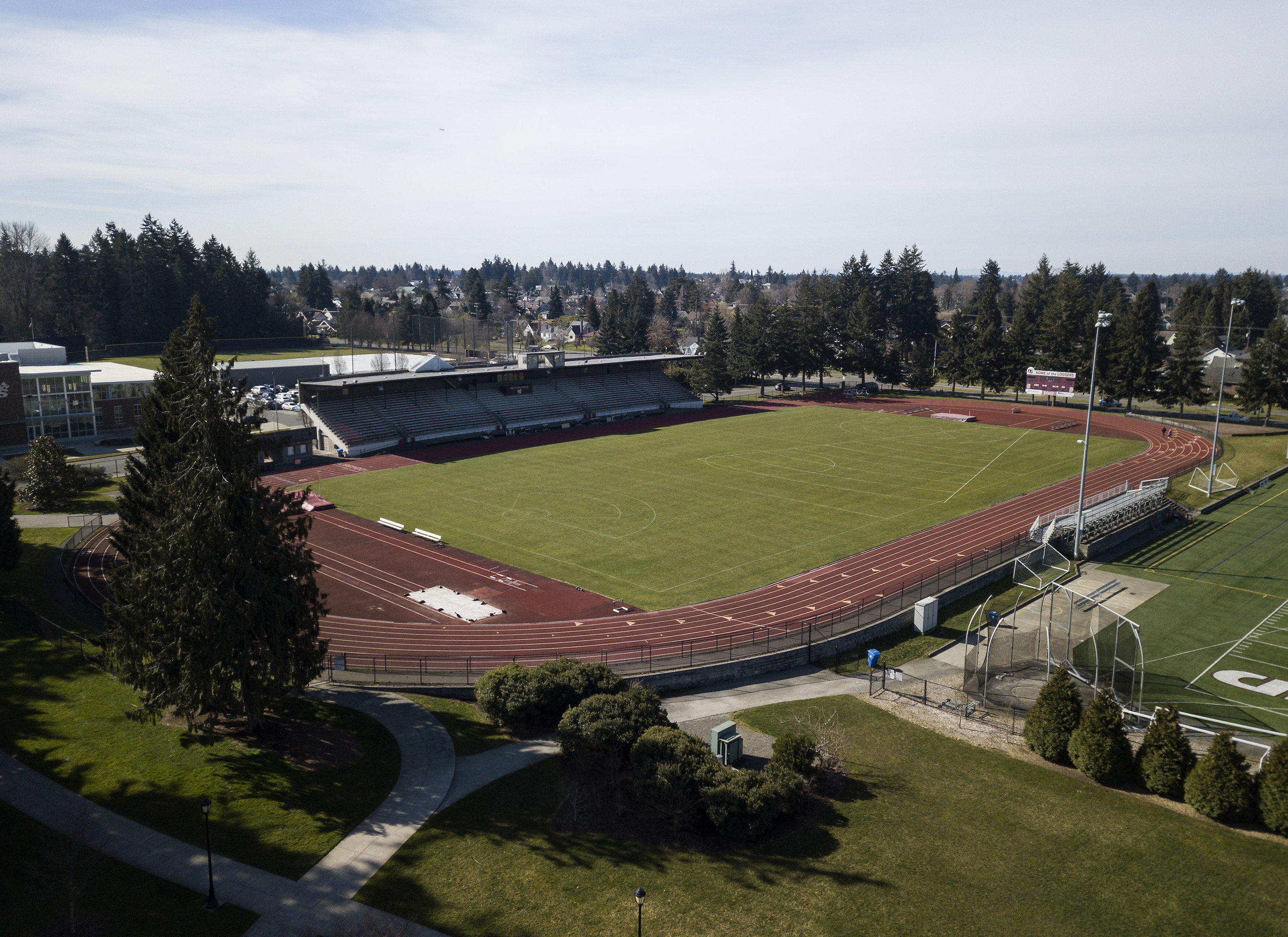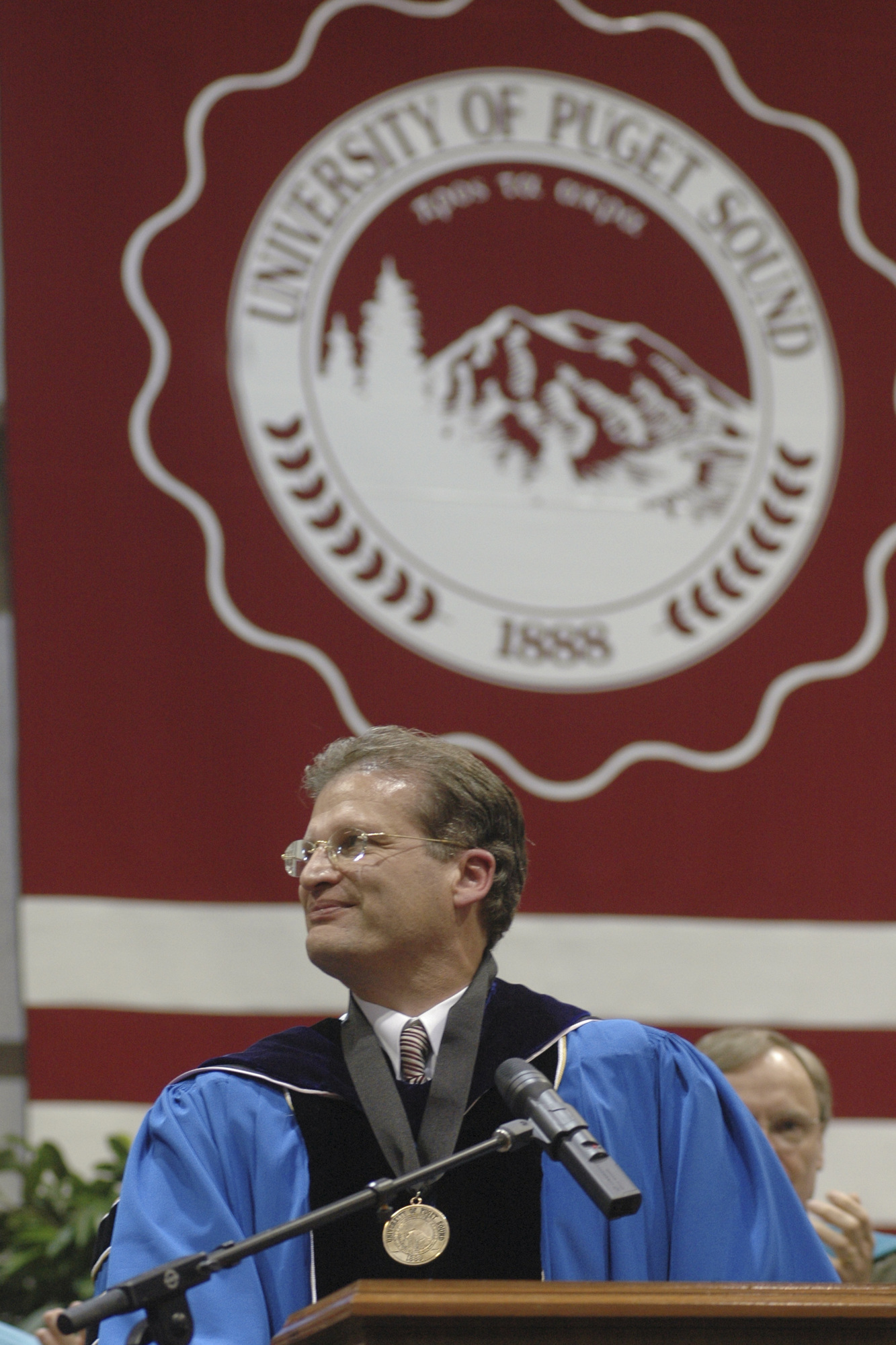President Isiaah Crawford on the many ways to be a part of the Logger family.
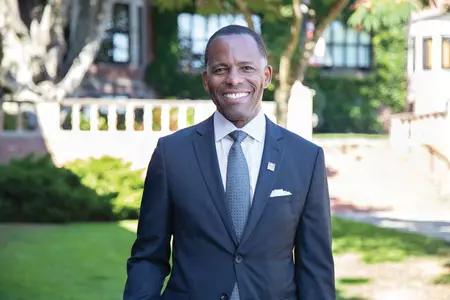
Q: A theme I hear a lot around here is “belonging.”What’s your take on the importance of making people feel welcome at Puget Sound?
A: What we’re trying to do is to make sure all of our students, faculty, and staff feel like this is a place for them—that they can feel comfortable, can be their full and unfettered selves, and have a sense of connectedness with our broader community. We want them to know that this will always be their home.
Q: One thing you did to help create a more welcoming environment was to elevate the diversity, equity, and inclusion role to a vice presidency. What has Lorna Hernandez Jarvis been doing that has you excited?
A: It’s been an absolute delight to have Dr. Hernandez Jarvis with us. She’s an exceptional and lovely person. One of the things I’ve been pleased about is that she looks to meet people wherever they are on their personal and professional journey related to DEI and engaging with others in a respectful and life-affirming manner. She’s doing an excellent job in promoting cultural humility and intercultural competence across all members of our campus community.
Q: Another way that students can feel a part of this school is by diving into cocurricular activities.
A: Absolutely. We have close to 100 clubs, activities, and affinity groups for students to find connections and social engagement on campus. We’re encouraging students not only to participate in activities where they already have mastery but to try something different. We’re looking to promote not just their academic and intellectual development but also their social development. And that involves trying new things, meeting different types of people, taking advantage of this learning laboratory that is Puget Sound, Tacoma, and the Pacific Northwest. We want students to have periods of self-reflection and to develop their sense of self beyond just the academic component of their development.
Q: How does Puget Sound stack up with other schools in terms of those offerings—not just clubs and sports but also experiences, like student research and the PacRim program?
A: We really have made a commitment to experiential learning, to promote deep learning—and so, effective this fall semester, we have made a commitment to provide all undergraduate students with the opportunity for an internship, mentored research, a study away or study abroad program, or a community-based project. We believe this promise, along with the depth and breadth of our curriculum and the unique cultural experiences available here in the Pacific Northwest, really does distinguish us, because we’re actually making this a requirement for the baccalaureate degree. So it’s not just those entrepreneurial, extroverted, go-getter students who are taking advantage of those things; we’ve built it into the curriculum such that every undergraduate student has those opportunities.
Q: I want to ask you about a particular activity that’s celebrating its centennial: the forensics program.
A: We’re very proud of our forensics program. It’s something that is a quintessential part of a liberal arts education—the ability to bring depth and breadth of knowledge to a given topic, to speak about it with clarity and conviction, and to engage in debate that is thoughtful and respectful. We even have a Center for Speech and Effective Advocacy, which provides a space for students to practice and refine skills of public speaking, argumentation, advocacy, and persuasion. We look to do all that we can to support students in their development to express themselves in deep, thoughtful, and effective ways to a variety of audiences.
Q: Another program celebrating an anniversary this year—its 90th—is the Adelphians.
A: Yes, and it’s been one of my joys as president to attend the Adelphians’ concerts. The caliber of their performances is just outstanding. Something that I also find impressive is that the members are not necessarily music majors—they’re just supremely multitalented students from across all of our programs.
Q: In terms of that sense of belonging: There’s a notion that you’re a Logger regardless of when you graduated, whether we still offer the program you majored in, whether you were Green and Gold or Maroon and White—we embrace everybody as part of the Puget Sound family.
A: We have a phrase we use a great deal: “Once a Logger, always a Logger.” Once you step into and become a member of this community, you’re always a part of us and you’re always connected to us. That’s been a tradition over the entire history of the university, and we’re very proud of it.
